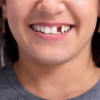
Protecting your teeth for a long-lasting smile with Dental Sealants
Dental sealants are a preventative dental care treatment and are used to protect the chewing surfaces of the back teeth (molars and premolars) against decay. They consist of a thin plastic coating that is painted onto these surfaces. The sealant protects the grooves and fissures in these teeth, as they can be difficult to clean and therefore vulnerable to decay.Sealants effectively ‘seal’ these fissures, preventing plaque and food from penetrating. The sealant is just about colourless so it’s virtually invisible to anyone other than your dentist or hygienist!
Who Can Have Dental Sealants?
The most suitable candidates for dental sealants are children and teenagers whose adult teeth have newly erupted. This is because a dental tooth sealant can only be placed on teeth that do not have any decay or fillings. Adults with healthy back teeth may also be able to receive this effective treatment.
It is recommended that children have dental sealants soon after their adult teeth come in, but occasionally we may suggest sealants for baby or primary teeth as well. Some baby teeth have deep fissures that are hard to clean, increasing the risk of tooth decay and potential early tooth loss. Although primary teeth only last a few years before being shed, they act as essential ‘placeholders’ for adult teeth, helping them erupt normally, so protecting them with dental sealants is vital.
How Are Dental Sealants Applied to the Teeth?
The process of applying dental sealants is quick and straightforward:
- Each tooth needs to be thoroughly cleaned and dried.
- A special solution is painted onto the chewing surfaces of each tooth to lightly etch or roughen the surface as this helps to increase the bond between the dental sealant and the tooth.
- The etching solution is removed, and the tooth is rinsed and dried.
- The dental sealant is painted on to the chewing surface of each tooth and is allowed to harden.
Dental sealant seekers will appreciate that sealants can last up to 10 years before needing renewal. Their condition will be checked at each dental appointment to ensure they are still protecting your teeth effectively, and will be replaced as necessary.



